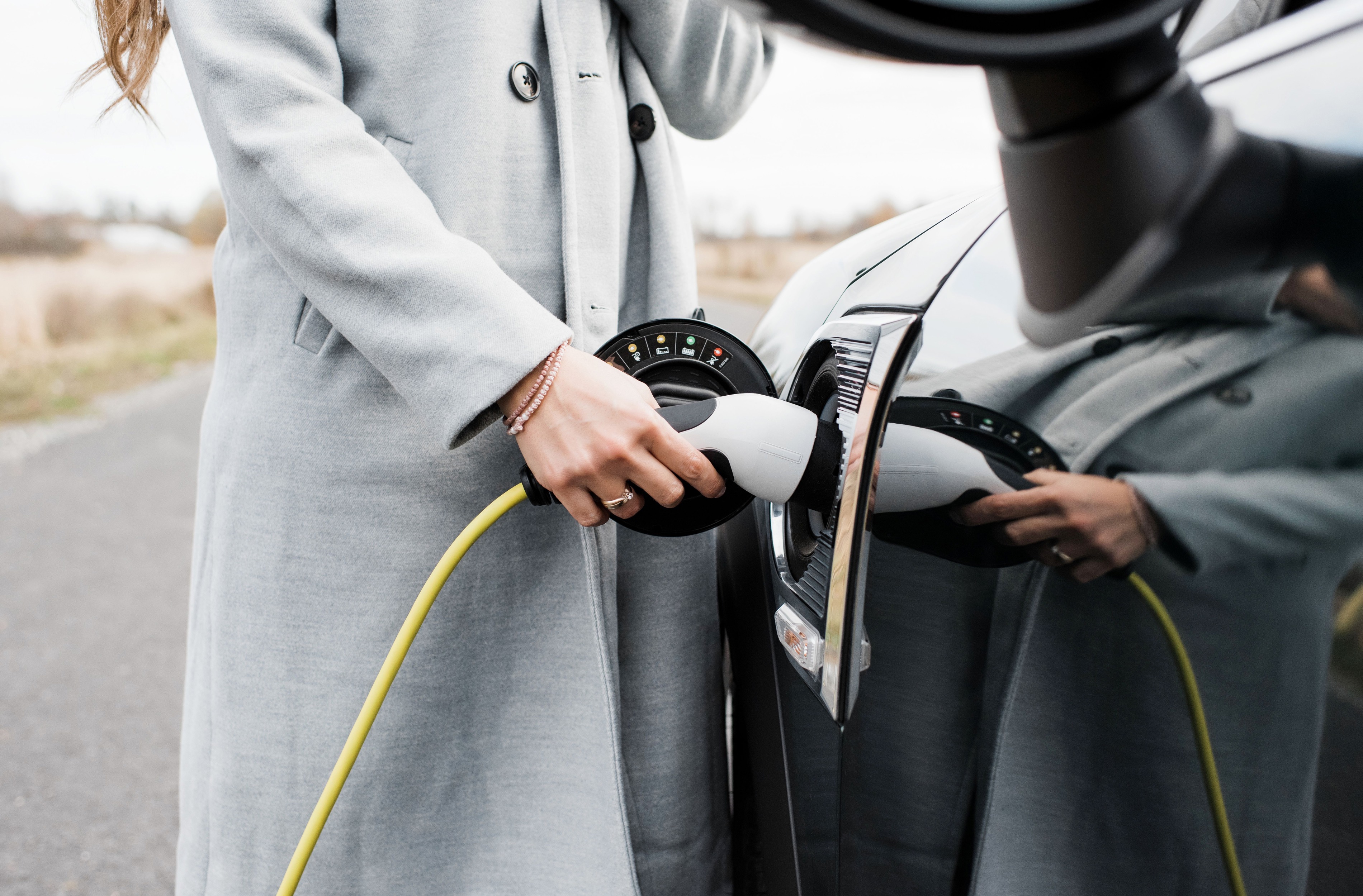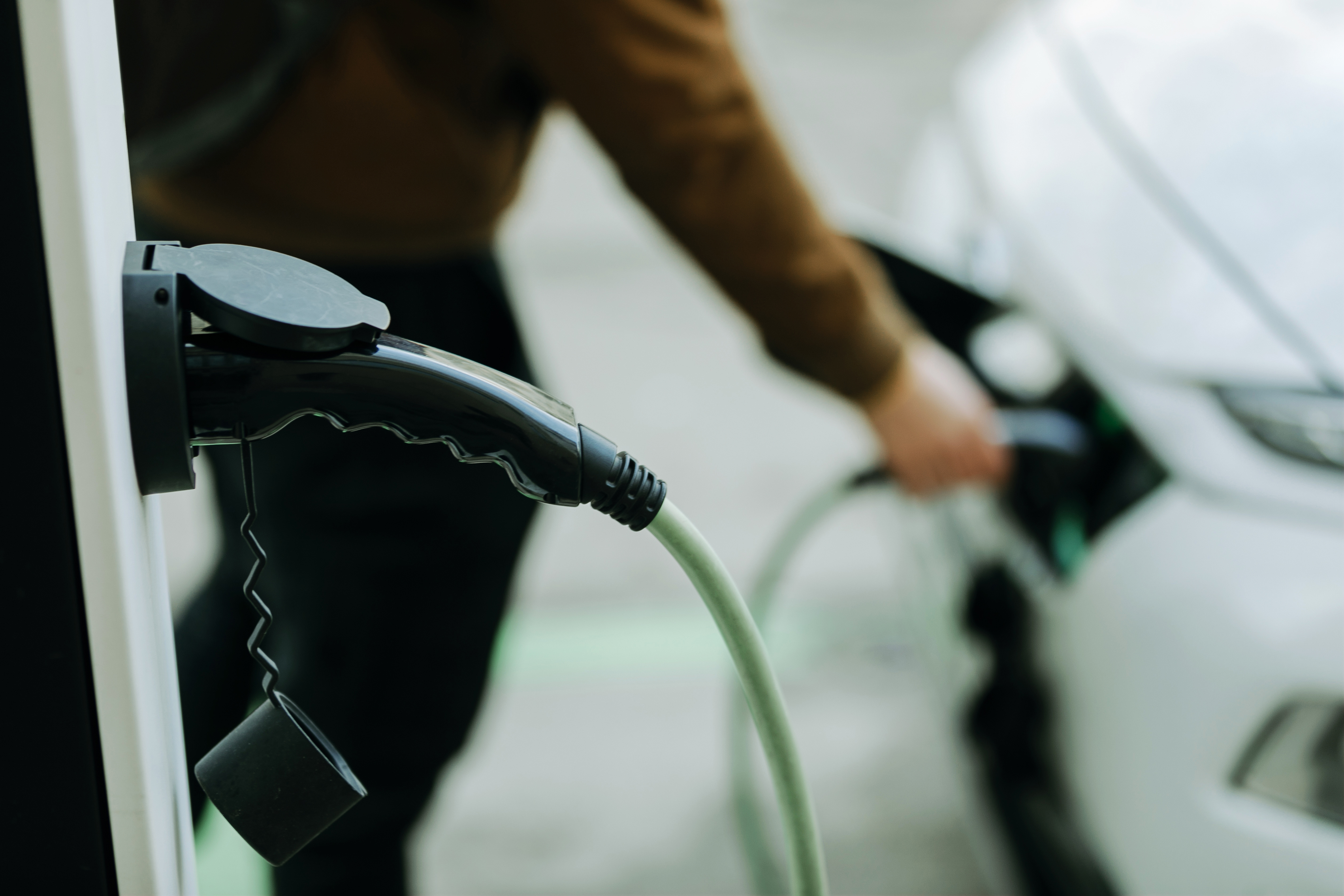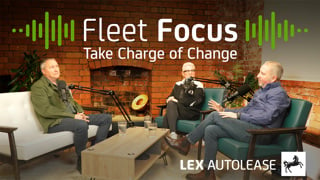Advertisement feature from Lex Autolease
Separating fact from fiction with real-world data
Charging nightmares. Pollutant ‘green’ machines. Drivers racing back to petrol. A failed fad. A costly gamble. EVs over? Or so they say. But it’s time for a reality check. The EV market is booming, infrastructure is scaling, and costs are dropping. It’s time to cut through the media noise and set the record straight.
 Chris Chandler, Principal Consultant at Lex Autolease and Subject Matter Expert for electrification and alternative fuels for Lloyds Transport, explains why EVs have a Public Relations problem – and what we can do to set the record straight.
Chris Chandler, Principal Consultant at Lex Autolease and Subject Matter Expert for electrification and alternative fuels for Lloyds Transport, explains why EVs have a Public Relations problem – and what we can do to set the record straight.
Why do we read so much about the ‘downsides’ of EVs?
Controversy sells
Some information about EVs can be sensationalised. Information that creates tension between EVs and traditional vehicles often attracts more attention. This can lead to exaggerated claims spreading quickly.
People naturally fear the unknown
And to many, EVs are just that. If they have doubts about EVs, they’ll find negative stories to qualify how they feel. This is known as confirmation bias.
Snappy soundbites often lack detail and context
Online snippets can lead to misunderstandings, making it harder to distinguish between reality and exaggeration.

Eco, cost and charge: Five EV myths, busted
The EV charging network is too small
Truth: The UK’s EV charging network is growing fast. There are now over 73,000 public chargers, with rapid and ultra-rapid options expanding fast. That means faster charging on long trips and better access at service stations, with some locations now offering over 20 chargers. Between December 2023 and 2024, the charging network grew 37%, with rapid and ultra-rapid chargers increasing by 43%. Right now, there are 19 battery electric vehicles (BEVs) per public charger and 93 BEVs per rapid or ultra-rapid charger, many with multiple connectors to boost accessibility. With 1.4 million BEVs on UK roads and 80% of home-drivers charging at home, the infrastructure is keeping up. And it’s only getting stronger.
EVs are too expensive
Truth: EV prices are falling, while petrol and diesel cars are getting more expensive. New technology often starts at a premium, but we’re now seeing more affordable EVs hit the market. A great example is the new Dacia Spring at £14,995, the UK’s cheapest EV. At Black Horse, data shows that between 2020 and 2024, new EV prices dropped by 16%, while petrol and diesel cars increased by 24%. Used EVs saw an even bigger shift, falling 46%, while ICE vehicles rose 9%. Autotrader’s data now shows that 3-year-old EVs are price-matching petrol  and diesel equivalents. A Jato Dynamics report confirms the trend: the price gap between EVs and ICE cars in the UK has shrunk from 51% to 18% over six years, as EV prices fell 11% while ICE prices rose 14%. And for company cars or salary sacrifice schemes, EVs can be the cheaper choice thanks to tax benefits like lower Benefit In Kind rates. The bottom line? EVs are more affordable than ever – and the gap is only narrowing.
and diesel equivalents. A Jato Dynamics report confirms the trend: the price gap between EVs and ICE cars in the UK has shrunk from 51% to 18% over six years, as EV prices fell 11% while ICE prices rose 14%. And for company cars or salary sacrifice schemes, EVs can be the cheaper choice thanks to tax benefits like lower Benefit In Kind rates. The bottom line? EVs are more affordable than ever – and the gap is only narrowing.
EVs just shift pollution to power stations
Truth: EVs cut carbon emissions significantly compared to petrol and diesel cars. They are far more efficient to run, and even when factoring in battery production, their lifetime carbon footprint is lower. BMW provide detailed data comparing the environmental impact of all their new vehicles, and comparing the EV i5 and 5 Series 520i petrol found that, using a European electricity mix, the EV saved 16.6 tonnes of CO2e over 125,000 miles. Charging with renewable energy increases this saving to 27.4 tonnes, cutting the petrol model’s emissions from 45.7 tonnes to just 18.3 tonnes of CO2e. What’s more, the UK’s coal power era is over. With the world’s largest offshore wind farm and a rapidly growing renewables sector, EVs are only getting greener.
EV sales have collapsed as the ‘fad’ fades
Truth: At Lloyds Transport, our EV fleet has grown from just 200 in 2015 to over 170,000 today – rising to 250,000 when including plug-in hybrids. Tusker’s numbers tell a similar story, surging from fewer than 500 EVs in 2020 to over 40,000 in 2025. Across the UK, EV adoption continues to grow, with battery electric vehicles making up 19.6% of all new car sales in 2024. Looking ahead, the UK’s Zero Emission Vehicle (ZEV) mandate will push EV adoption even further, targeting 80% of new car sales by 2030. And globally? The Tesla Model Y was the world’s best-selling car in 2023, outselling petrol and diesel models with 1.2 million units sold. Proof that EVs aren’t a trend, they’re the future.

EV drivers are ditching their cars for petrol
Truth: The data tells a different story. At Lloyds Transport, we finance over 170,000 EVs across corporate fleets, salary sacrifice schemes, and retail customers. And when it comes to choosing their next vehicle, EV drivers are sticking with electric. In Lex Autolease, 95% of EV drivers replace their car with another EV, while only 2% switch back to petrol or diesel. In Black Horse retail finance, EV retention is slightly lower at 74%, but still strong. There’s no rush back to petrol, far from it. Industry trends support this, and brand loyalty is highest among Tesla (90%) and Polestar (72%), both EV-only manufacturers. The shift to electric isn’t going backwards.
Sources: Autotrader, Black Horse, BMW, Dacia, Gov.uk, Jato, Tusker, ZapMap
What can we do?
Educating the public will be a key part of dispelling myths about EVs, and Brokers and Fleet Managers have an important role to play. There are simple ways you can help:
- Provide training for your team, so they’re ready to reassure customers with reliable information.
- Share real-world data on performance and the growing charging network with your team, customers and industry colleagues.
- Attend industry conferences and workshops so you’re always up to date with EV advancements.
Together we can shape perceptions, push out misinformation and help drive the UK towards a more sustainable future.
For the use of brokers, fleet managers and other professionals only. Lex Autolease Limited. Registered office: 25 Gresham Street, London EC2V 7HN. Registered Number: 1090741 England and Wales. Lex Autolease Limited is authorised and regulated by the Financial Conduct Authority for credit related regulated and insurance distribution activities. Information correct as of February 2025.

















Login to comment
Comments
No comments have been made yet.